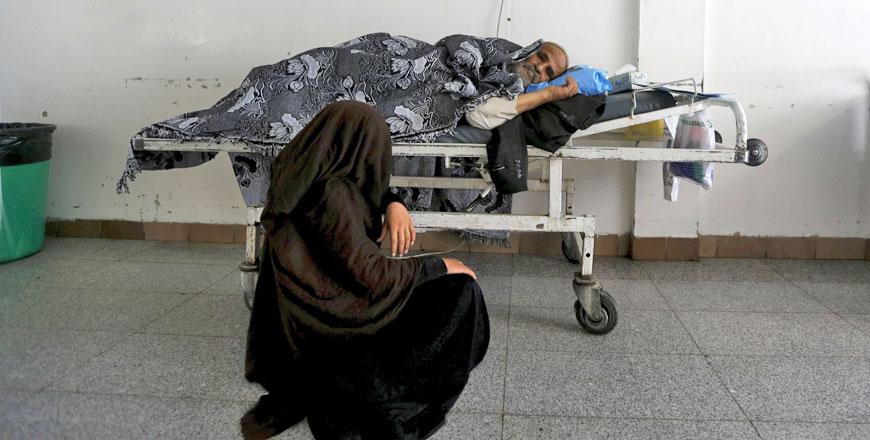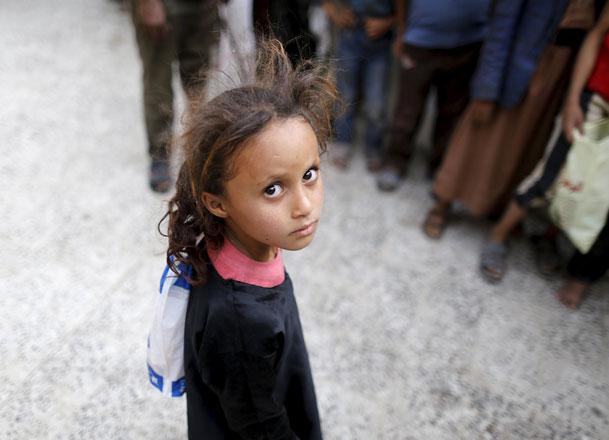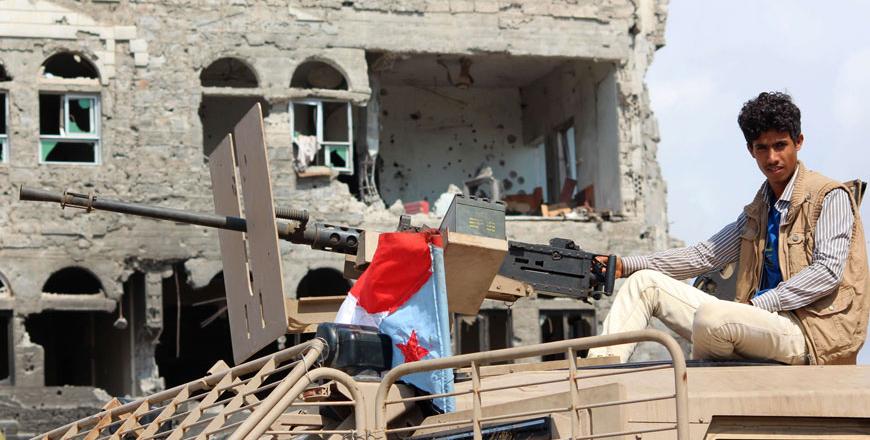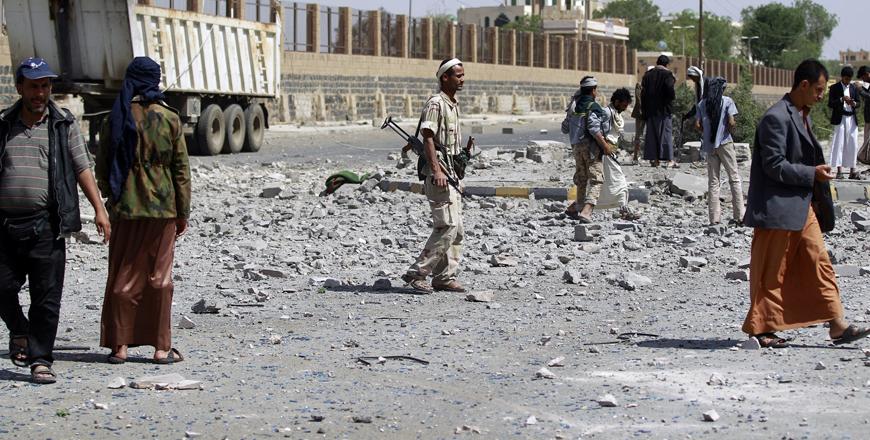You are here
UN warns of impending famine in conflict-torn Yemen
By AP - Jun 24,2015 - Last updated at Jun 24,2015

A woman sits near her father as he waits to be given a bed at a government hospital in Sanaa, Yemen, on Wednesday (Reuters photo)
UNITED NATIONS — The UN special envoy for Yemen warned Wednesday that the conflict-torn Middle East nation is "one step" from famine, with 31 million people in need of humanitarian assistance compared with just 7 million two years ago.
Ismail Ould Cheikh Ahmed told reporters after briefing the UN Security Council behind closed doors that all parties to the conflict are responsible for the dire suffering of the Yemeni people until there is "a true ceasefire."
The humanitarian crisis in the Arab world's poorest country has escalated as the conflict has intensified.
Ground fighting and Saudi-led air strikes targeting Yemen's Shiite Houthi rebels killed nearly 100 people Wednesday.
The fighting in Yemen pits the Houthis and allied troops loyal to former president Ali Abdullah Saleh against southern separatists, local and tribal militias, Sunni militants and loyalists of President Abed Rabbo Mansour Hadi, who is now based in Saudi Arabia. The rebels seized the capital, Sanaa, in September. In March, a Saudi-led and US-backed coalition began launching air strikes against the rebels and their allies.
The conflict has left 20 million Yemenis without access to safe drinking water and uprooted over 1 million people from their homes, Ould Cheikh Ahmed said.
A near-blockade of Yemen's ports has made it very difficult to deliver humanitarian aid. But the International Committee of the Red Cross said a ship carrying 1,000 tons of food and three large generators from Oman had docked in Yemen's Hodeida port on Wednesday.
"In view of the economic blockade that affects all the people in Yemen, the arrival of this emergency aid is a welcome development," said Antoine Grand, who heads the ICRC in Yemen. "The food and generators will make a difference for tens of thousands of people directly affected by the armed conflict."
While the ship's arrival was a rare piece of good news, fighting kicked off at dawn Wednesday in the cities of Ibb, Aden, Taiz, Marib, Dhale and the Houthi stronghold of Saada, killing nearly 100 people, including many civilians, Yemeni officials said. In Aden dozens of shells fell on densely populated neighbourhoods, while artillery duels shook the city of Taiz.
The Houthi-controlled interior ministry said that some 20 civilians were killed Tuesday by Saudi-led air raids.
Ould Cheikh Ahmed, who mediated talks between the parties in Geneva last week, said that despite the deep divisions and failure to reach any agreement, "both sides showed signs of constructive engagement and there is an emerging common ground upon which we can build to achieve an eventual ceasefire coupled with the withdrawal of combatants."
He called for a humanitarian pause during the current holy month of Ramadan as a first step towards a sustainable ceasefire that would be monitored by "an international, impartial mechanism".
In efforts to reach a truce, Yemeni security officials said representatives of the southern separatist movement were meeting with the Houthis in the Omani capital, Muscat.
A delegation from the party of former president Saleh was also headed to Moscow to meet Russian officials, they said, speaking on condition of anonymity because they were not authorised to talk to reporters.
Ould Cheikh Ahmed said the Omanis and others are trying to facilitate the UN-led process.
Related Articles
UNITED NATIONS — The United Nations on Wednesday declared its highest-level humanitarian emergency in conflict-torn Yemen, where over 80 per
GENEVA/DUBAI — Yemen's warring parties are expected to observe a ceasefire and start UN-sponsored peace talks in Switzerland from December 1
DUBAI — Aircraft from a Saudi-led coalition bombed Yemen's Houthi outposts throughout the country on Sunday, residents said, while Yemen's g














